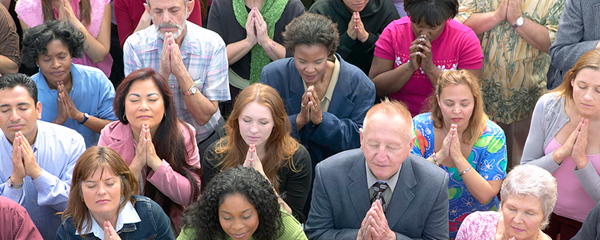A Moment for Mission
“We must always give thanks to God for you, … because your faith is growing abundantly and the love of every one of you for one another is increasing.” — 2 Thessalonians 1:3, NRSVUE
The General Commission on Archives and History of The United Methodist Church recently announced the launching of their online teaching platform, the UM History Hub (https://umhistoryhub.teachable.com/).
“Several simultaneous pieces came together that sparked the idea,” said General Secretary Ashley Boggan. “We were reworking the Local Church Historians’ School to offer ways to further connect and engage those who take the course. Additionally, we were working on Heritage Sunday resources for 2022 under the theme ‘Splits, Separation and Reconciliations.’ There was then a natural progression of other United Methodist-specific history courses that we could bring to the church.”
The hub homepage invites members to understand the past, investigate the present and envision the future. The hub currently offers registration for the Local Church Historians’ School; a fully online course that focuses on past denominational splits, separations and reconciliations; a timeline of UMC history by artist Charlie Baber; a fully online course for youth to pique their interest in Wesleyan roots; access to the “Un-Tied Methodism” podcast; and new UMC history swag.
Today, Protestant congregations around the world celebrate Reformation Sunday. This observance honors Martin Luther’s bold action on October 31, 1517. He posted his statement of faith—known as the 95 Theses—on the door of Castle Church in Wittenberg, Germany, resulting in vast social and political changes.
Thanks to United Methodist support of Archives and History through the World Service Fund, we learn about our church’s rich history.
Children’s Message
What is history? It’s the study of the past. History helps us understand the things that happen today and that may happen in the future.
In history classes, you learn about George Washington and other U.S. presidents. You learn about inventors like Thomas Alva Edison. You learn about heroes like Clara Barton, who founded the American Red Cross. History is written every day.
But do you know about the history of our church? Have you heard of John and Charles Wesley, Martin Boehm, Philip William Otterbein, Francis Asbury or Thomas Coke? What about Mary Evans Thorne, Barbara Heck, Sarah Mallet and Sojourner Truth?
Luckily for us, experts at the United Methodist Commission on Archives and History study and know history and can answer our questions.
Offertory Prayer
Loving God, thank you for opportunities to grow in our faith as our love for one another increases. Thank you for the General Commission on Archives and History. We love you. Amen.
From Discipleship Ministries: Twenty-First Sunday after Pentecost — Compassionate God, as Jesus did for Zacchaeus, you reach across the chasms that we’ve created, the ones where we’ve isolated ourselves from the redemptive power of your love. As with Zacchaeus, bridges have been built, and people who believed they were beyond your embrace have been welcomed to the table with open arms! As we give to you this day, may we also follow the example of Zacchaeus – with an explosion of gratitude and generosity – and may we also know his joy! We pray this in the name of Jesus, who invites himself to our table! Amen. (Luke 19:1-10)
Newsletter Nugget
“The global pandemic forced us to think about new ways to use technology on a massive scale,” said Jay Rollins, director of communications at the General Commission on Archives and History. “Suddenly, church services were online, meetings were on Zoom, and FaceTime for conversations with friends and family became the norm. It sparked us to think about ways we could offer the history of the denomination to the local church in a way that we never had been able to in the past.”
The result was an online teaching platform, the UM History Hub, which launched recently (https://umhistoryhub.teachable.com/). Members are encouraged to sign up for the hub to receive updates.
“All proceeds from these courses support our new ministries of memory at GCAH,” general secretary Ashley Boggan noted. “Your engagement with us ensures that we can continue to help all Methodists understand the past in order to contextualize the present and envision a more grace-filled future.”
United Methodists support GCAH through the World Service Fund.
Adapted from General Commission on Archives and History website. Used by permission.

